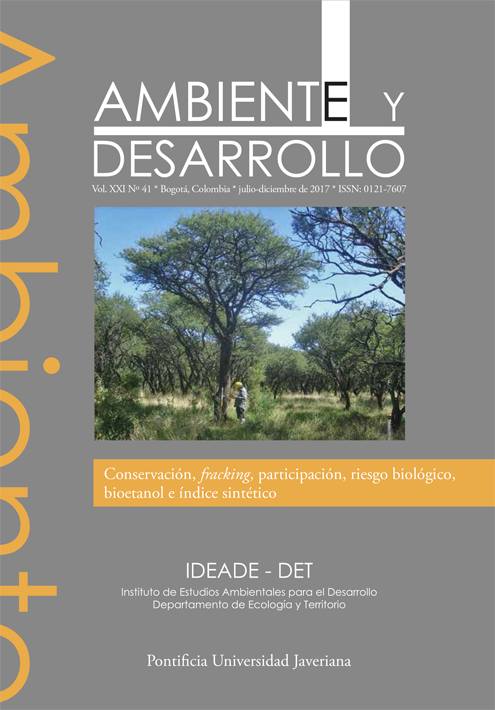Resumen
Las áreas naturales bajo régimen de protección han sido consideradas lugares con limitada participación comunitaria, especialmente en Latinoamérica, donde son evidentes los niveles de marginación y desigualdad. Los proyectos de geoparques fungen como alternativas vinculantes entre la sociedad y el patrimonio natural con base en las áreas protegidas ya existentes. En tal virtud, se levantó información social por medio de encuestas y observación directa en ocho territorios de cuatro países latinoamericanos: Brasil, Chile, Ecuador y México, con el propósito de examinar las condiciones de participación y percepción comunitaria. Los resultados muestran una similitud en los aspectos estimados para geoparques y áreas naturales protegidas (ANP) con respecto al fondo social. No obstante, se perciben temas como las motivaciones, la comunicación y la información que deben ser trabajados de manera intensiva para mejorar la participación y, a su vez, la percepción de las comunidades locales.
Ambiente y Desarrollo se encuentra registrada bajo la licencia Creative Commons Reconocimiento 4.0 Internacional. Por lo tanto, esta obra se puede reproducir, distribuir y comunicar públicamente en formato digital, siempre que se reconozca el nombre de los autores y a la Pontificia Universidad Javeriana. Se permite citar, adaptar, transformar, autoarchivar, republicar y crear a partir del material, para cualquier finalidad (incluso comercial), siempre que se reconozca adecuadamente la autoría, se proporcione un enlace a la obra original y se indique si se han realizado cambios. La Pontificia Universidad Javeriana no retiene los derechos sobre las obras publicadas y los contenidos son responsabilidad exclusiva de los autores, quienes conservan sus derechos morales, intelectuales, de privacidad y publicidad.
El aval sobre la intervención de la obra (revisión, corrección de estilo, traducción, diagramación) y su posterior divulgación se otorga mediante una licencia de uso y no a través de una cesión de derechos, lo que representa que la revista y la Pontificia Universidad Javeriana se eximen de cualquier responsabilidad que se pueda derivar de una mala práctica ética por parte de los autores. En consecuencia de la protección brindada por la licencia de uso, la revista no se encuentra en la obligación de publicar retractaciones o modificar la información ya publicada, a no ser que la errata surja del proceso de gestión editorial. La publicación de contenidos en esta revista no representa regalías para los contribuyentes.


